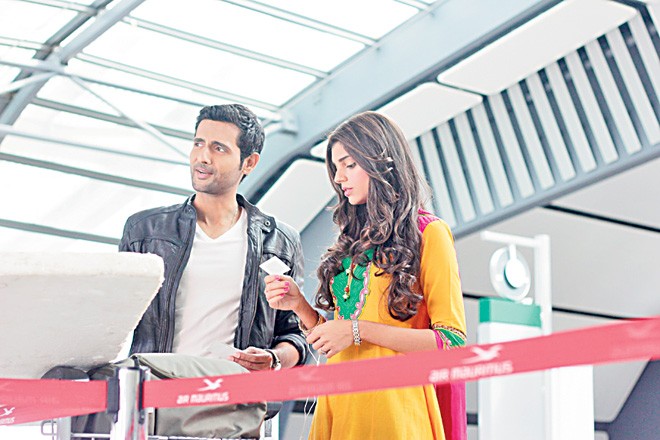
Instep speaks to a diverse group of artists as they weigh in on the future of cinema

If the past year one year has proven anything, it’s that Pakistani cinema is finally on its way to finding an identity of its own. If 2015 gave us films like Moor, Manto, Shah, 3 Bahadur, Dekh Magar Pyar Se, Bin Roye, Karachi Se Lahore, Wrong No and Jawani Phir Nahi Ani 2016 feels equally momentous. Several films are scheduled to make a mark in the coming months ahead including the reimagining of the iconic Maula Jutt by Bilal Lashari, a noir film called Downward Dog by Jami, a biopic on the legendary Alamgir starring Fawad Khan as well as Shaan Shahid’s adaptation of Mahesh Bhatt’s iconic 1982 film, Arth. More closer to release is the adventurous Bachaana starring Sanam Saeed, Mohib Mirza and Adeel Hashmi, which is scheduled to arrive in cinemas later this month.
There are plenty of reasons to celebrate this new age of cinema, not the least of which is the usage of local music and the glorious innovation on display by fiery acts that represent the expanding music scene. Think Jamal Rahman and Danish Khwaja’s intense Manto soundtrack or the surprisingly catchy sounds of DMPS and the haunting glory of Moor’s music by Strings.
That said, this resurrection story, though not without merits, still needs time as first-time filmmakers learn from past mistakes and learn to hone their craft, both technically and conceptually.
Films need to start looking like films, not TV dramas; scripts need to be sharper and embedded with performances that leave a lasting impression. Acting truly needs to improve across the board. There is a desperate need for creative, out-of-the-box thinking when corporate sponsorship is involved with a film. Filmmakers need money to make films but branding needs to be subtle.
But none of these things can be achieved overnight. And this is the sentiment shared by many industry experts who we caught up with over the course of this story.
Actor Adeel Hashmi, who makes his big screen debut in Bachaana later this month, feels no can predict the fate of a film except maybe the audience."There is no formula to success. We have taken the first step but the journey ahead is long," Hashmi told Instep on the sidelines of the Bachaana trailer launch in Karachi. Using a cricket analogy, Hashmi noted, "Pakistan performs well in the first 15 overs and struggles later on. Hopefully, our performance will stay strong beyond the first few overs… like a test match."
Bilal Maqsood, one-half of super music group Strings and co-producer of Coke Studio (since 2014) as well as the glorious soundtrack of Moor, believes that cinema will give this country stand-alone icons. A supporter of the new wave of Pakistani cinema, Maqsood (along with band mate Faisal Kapadia) was present at the music launch concert of Ho Mann Jahan and during the course of a brief and conversation with Instep, Maqsood reflected on the need for cinematic heroes.
"The tragedy is that we don’t have icons," he told Instep and continued: "Our icons come from across the border like Shah Rukh Khan or Salman Khan. Film is an institution that creates its own heroes. A large number of television stars are working in films now. This will change with time as cinema learns to creates its own icons. Both industries will grow independently."
Actor par excellence, Nimra Bucha who starred in last year’s Manto and also features in Asim Reza’s Ho Mann Jahan, maintains that art including cinema can and should hold a mirror to society. It has the power to reflect on the uncomfortable and necessary truths that we shy away from.
"The reason why people connected to a film like Manto was because we actually looked at ourselves and said, ‘oh, we’re not just brave, perfect, good Muslim people, there is a lot more to us’ - it was about an artist of ours who we didn’t own, so the film (Manto) was speaking a truth," Bucha told Instep in a recent conversation and noted, "Hearing the truth can be shocking but can also come as a relief, someone said it on our behalf. Cinema can do that…."
Meanwhile, filmmaker and musician Babar Sheikh maintains that several factors need to be taken into consideration when talking about cinema revival. "It’s not just films that make a revival possible," Shaikh told Instep. "There are several other things like distribution network or amount of screens; we’re way behind where we should be in terms of (cinema) screens. When the numbers of screens increase, viewership will also rise."
Shaikh (who is gearing up to make his own film soon) maintains that the focus needs to shift to strong, progressive narratives.
"As a fraternity of filmmakers, we need to focus on stories/narrative. Some of the best stories to come out of Pakistani TV screens happened in the eighties," Shaikh told Instep and added, "We have to look at a lot of other things like the way women are portrayed for example … Look at them now and look at them in the eighties. The way you had Marina Khan climbing walls, a working woman - it was forward moving and not like now when women are portrayed as ‘bechari’ types so I think that’s not evolution, it is devolution. I’m looking forward to what cinema revival will have to say about this."